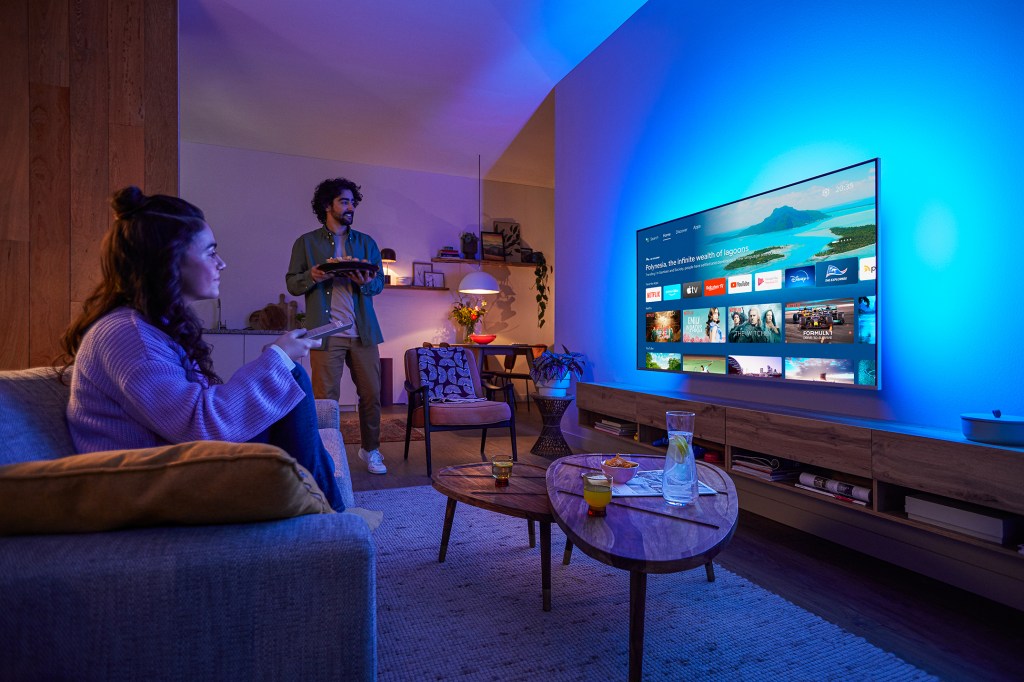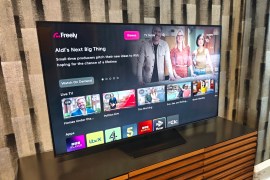What is Ambilight? The Philips LED tech explained
Philips launched its first Ambilight TV in 2004 and has continued to tweak and hone the technology ever since

Lots of so-called TV innovations haven’t lived to tell the tale (remember 3D TVs?), but Philips Ambilight has really stood the test of time. You might have seen TVs packing Ambilight’s distinctive brightly coloured lights, but what are they for? And more importantly, is Ambilight really worth it? Allow us to enlighten you.
No prizes for guessing that the name is a mash-up of ambient and light, but where did it come from? The proprietary technology was first cooked up in 2002 by consumer tech brand Philips. The company launched its first Ambilight TV in 2004 and has continued to tweak and hone the technology ever since.
It’s basically coloured mood lighting for your TV that matches what’s on screen to give you a more immersive viewing experience. It’s also been claimed that the tech can help to reduce eye strain.
How does Ambilight work?
Intelligent LED lights around the edge of the screen cast colours to onto the wall behind the TV in real time. The idea is that the coloured lights match what’s happening on screen, effectively extending the picture onto the surrounding walls. This gives the illusion of a bigger screen, drawing you into the action. Clever, eh?
It works best on films, sports and gaming, but Ambilight can also react to music. Music Mode gives you colourful lightships to match the tempo, volume, and intensity of your playlists.
Ambilight TVs can either be wall mounted or sat on a TV stand, but a matte white wall for the lights to bounce off will give you the best results.

Where can I get Ambilight?
Philips keeps its proprietary Ambilight tech closely guarded so you won’t find it on TVs from any other brands. It’s available on Philips’ range of LED. OLED, and OLED+ panels, with screen sizes starting at 43in and going up to 75in.
Early models only featured coloured lights down the left and right sides of the screen, but later versions brought the fancy light show to the top edge of the TV as well. Three-sided Ambilight is now the standard, while some of Philips’ fancier models feature four-sided Ambilight.

Does Ambilight work with Philips Hue?
It does indeed. You can take your mood lighting to the next level by hooking up your Ambilight TV to your Philips Hue smart bulbs. That means you’ll get an ambient glow that matches what’s on your TV all around the room.
And if you want to bring some of Ambilight vibes to your non-Philips TV, the Philips Hue Play Gradient Light Strip can be attached to the back of you telly. The nifty light strip is available for 55, 65 and 75in TVs, but to make it work you’ll also need to cough up for a Hue Bridge and Sync Box, if you don’t already have one.
Is Ambilight a gimmick?
Some might say Ambilight is a gimmick, but it’s done a good job of winning over picky TV buyers and tech journalists for nearly 20 years so it’s here to stay.

Is Ambilight worth it?
We reckon so. The idea behind Ambilight is simple but very, very effective. It’s especially effective on movies, sports and gaming packed with punchy colours, so you’re not really going to get the full effect if your viewing habits consist mainly of Love Island.



